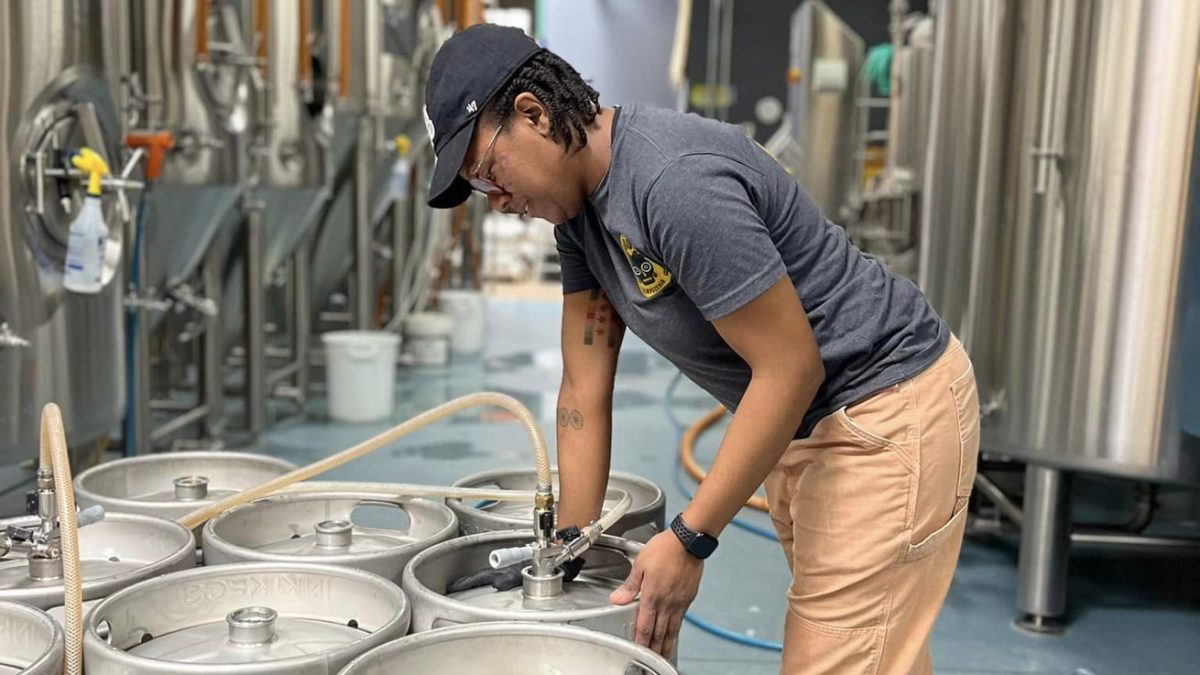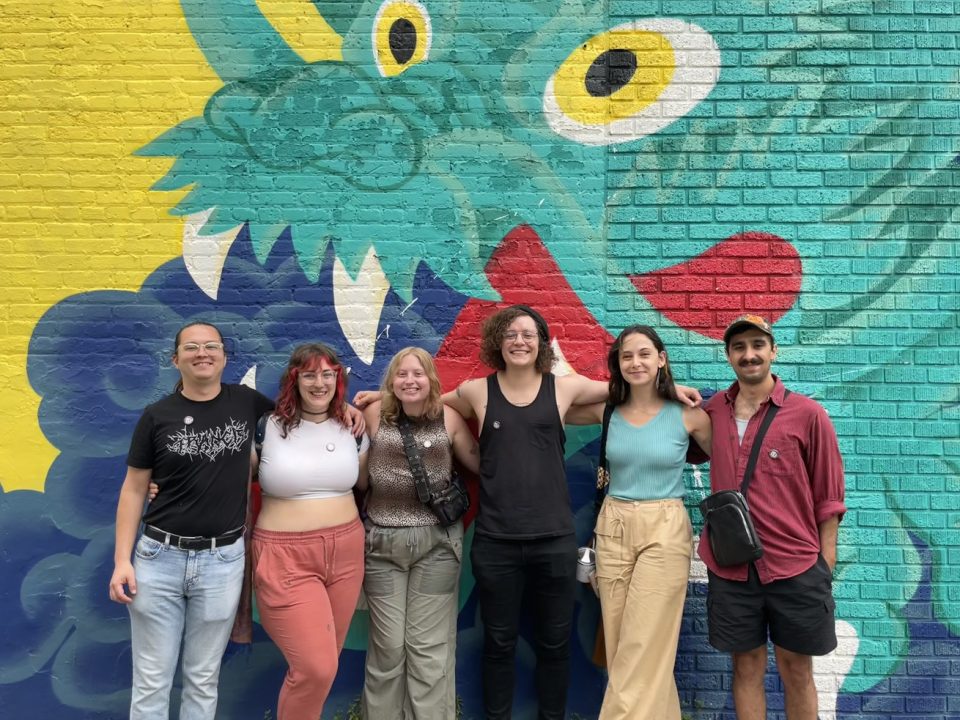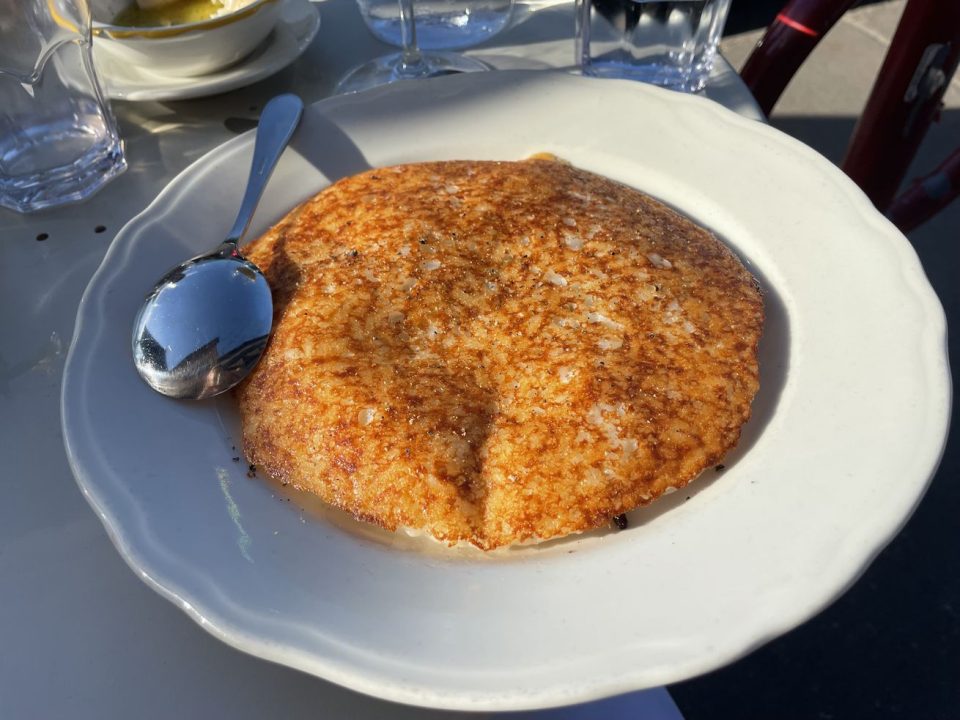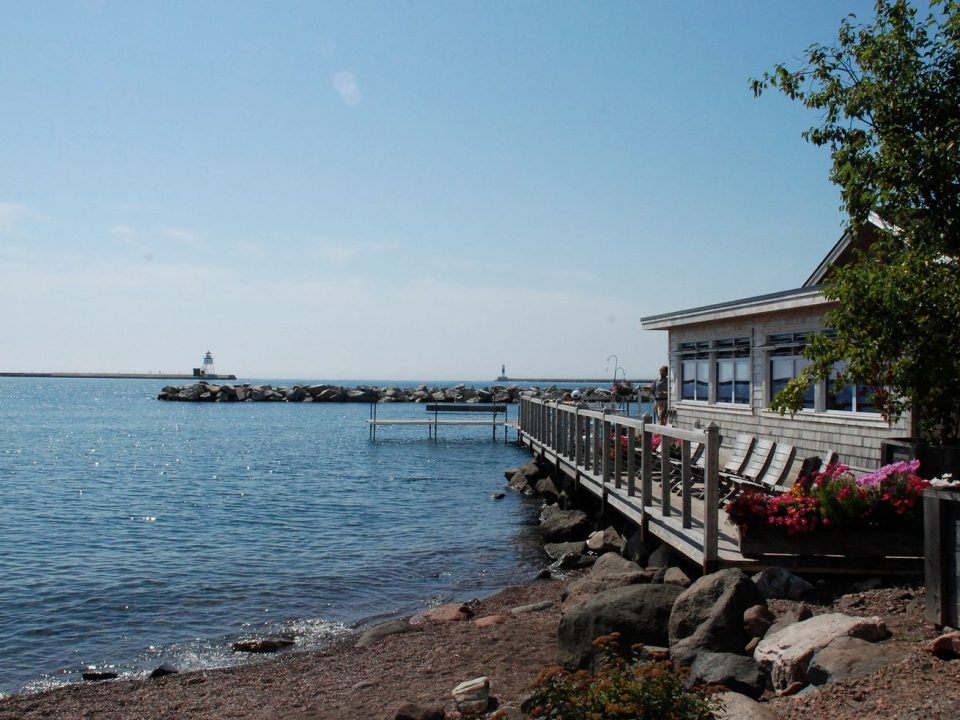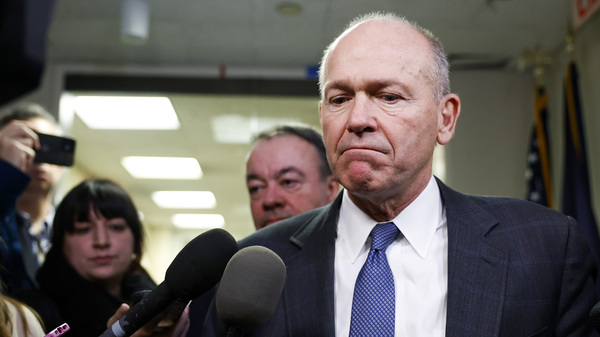
Boeing CEO Dave Calhoun to step down, part of a shakeup after 737 Max problems
March 25, 2024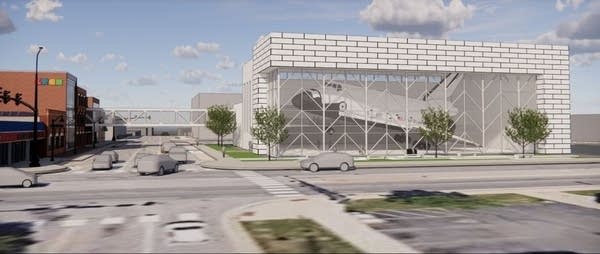
A space shuttle coming to St. Cloud? It’s possible
March 25, 2024Bubble Line Brewing Company, currently raising money, aims to open somewhere in St. Paul’s Rondo neighborhood in 2025
Plans are in place for Minnesota’s first Black woman-owned brewery to open in St. Paul’s Rondo neighborhood in early 2025.
Founder and head brewer Brittney Mikell is currently raising money through crowdfunding to launch Bubble Line Brewing Company. Her vision for the brewery includes not just lagers and IPAs, but nonalcoholic lemonade and espresso drinks, kid-friendly spaces, apprenticeships for brewers of color, a home brew library corner, and community events — in short, all the makings of a vital third place.
Mikell is relatively new to the brewing industry, but certainly not to the science behind making beer — she graduated from the University of Minnesota’s School of Pharmacy in 2020. Not long after she started working in the pharmaceutical field, the pandemic hit. “I didn’t feel like I was making the impact that I really wanted to in healthcare,” she says. As her friends began to experiment with sourdough in lockdown, she started home brewing. “I woke up one day and realized that this could be a really cool place where I could make an impact. You only really live once, so I decided, let’s just pivot — why not?”
She landed an assistant brewer position at La Doña Cerveceria, where head brewer Dickey Lopez served as her mentor. Her background in chemistry fueled her new passion. “Understanding how hops work — what’s a bittering hop, what’s an aroma hop — and figuring out your efficiencies, and how well we’re actually extracting what we need out of the grain, it’s all just science,” Mikell says. The brewery’s name, Bubble Line, comes from a chemistry term she learned from a mentor during her undergraduate studies at Northfield’s Carleton College.
As far as beer goes, Mikell says that Bubble Line will have a bit of everything, leaning into standard styles while adding a little proprietary flair. “We’re really focused on innovation — you have to make a damn good beer,” she says. One flagship beer she’s already perfected is a Honeycrisp apple blonde ale, a Minnesota homage that accents the sweet, juicy notes of the fruit on top of the blonde’s gentle maltiness. She also plans to serve espresso drinks — another one of her pandemic-era passion projects — and a hoppy, nonalcoholic ghost pepper lemonade. She’s considering offering THC drinks, too.
Mikell’s vision extends well beyond the beer itself. When Bubble Line opens in 2025, it’ll be Minnesota’s first Black woman-owned brewery. Brewing is a notoriously white industry — 2021 data from the Brewer’s Association showed that 93.5 percent of brewery owners were white, while 0.4 percent were Black. One other brewery in the state, Montgomery Brewing, is Black-owned. (One Fermentary, Minneapolis’s first Black-owned brewery, closed shortly after owner Ramsey Loud resigned in 2020, following mounting conflicts with his white business partners.) “I spend a lot of time at breweries and find that there are not very many Black people nor people of color there in general, and in leadership,” Mikell says. “I really want to be able to bring more folks of color into brewing.”
At Bubble Line, she plans to offer apprenticeships for brewers of color, pay staff a living wage, and emphasize environmental sustainability in the brewing process. The brewery will have a robust community events calendar, a library corner stocked with books on home brewing, and kid-friendly spaces that accommodate families. Mikell wants to host a three-on-three basketball tournament at the brewery too, space allowing. “Will we have enough space — no idea,” she says, and laughs. “But I like to dream big, and then I can whittle it down.”
Mikell is searching for a location in St. Paul’s Rondo neighborhood, the historic heart of St. Paul’s Black community, a prosperous area that was devastated by the construction of Interstate 94 in the 1950s and 60s. Seven-hundred homes were destroyed; 300 businesses were closed or demolished; compensation to families was minimal, resulting in a loss of around $157 million in home equity, according to a 2020 study.
Mikell is deeply committed to the neighborhood — she bought a home there in 2021. “I’m originally from the South Side of Chicago, and Rondo really feels like that same place to me,” she says. “Systemically it’s seen a lot of struggle and trauma around managing relationships with the city and the state.” She points to neighborhood cafe Golden Thyme, first opened by Mychael and Stephanie Wright and now run by the organization Rondo Community Land Trust, which uses the space as a kind of incubator for Black and community-owned businesses. That’s the kind of business, she says, she wants to emulate.
Bubble Line’s initial crowdfunding campaign was supposed to be a small-scale “friends and family” affair, Mikell says, but it’s grown quickly — it’s nearly halfway to its $20,000 goal. She plans to launch a larger PR campaign in May, and to look for investors down the line. But she already has a team, including an architect, assembled. “Everything’s lined up — we’re just looking at buildings and trying to make something happen,” she says. Follow Bubble Line’s progress on Instagram.



